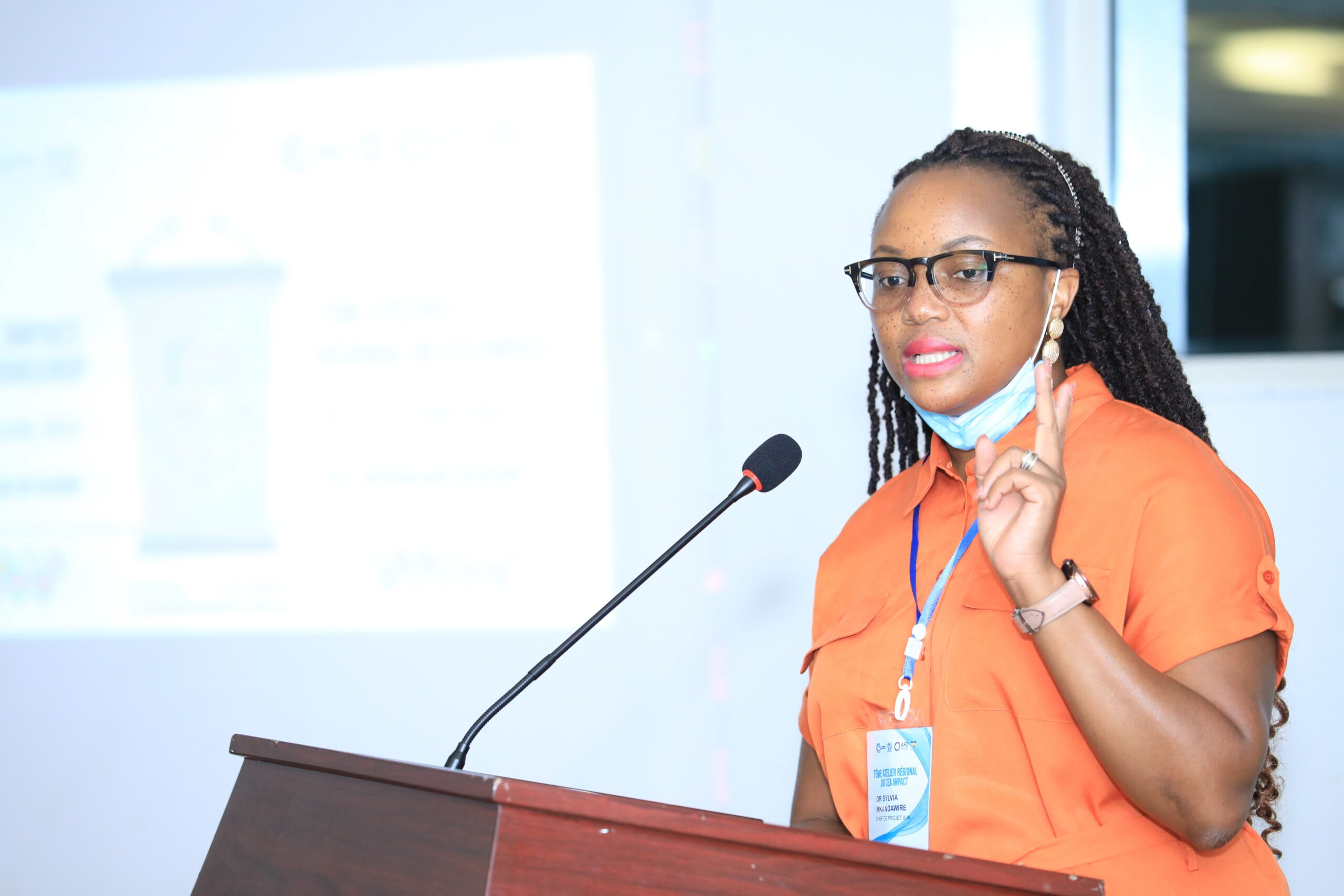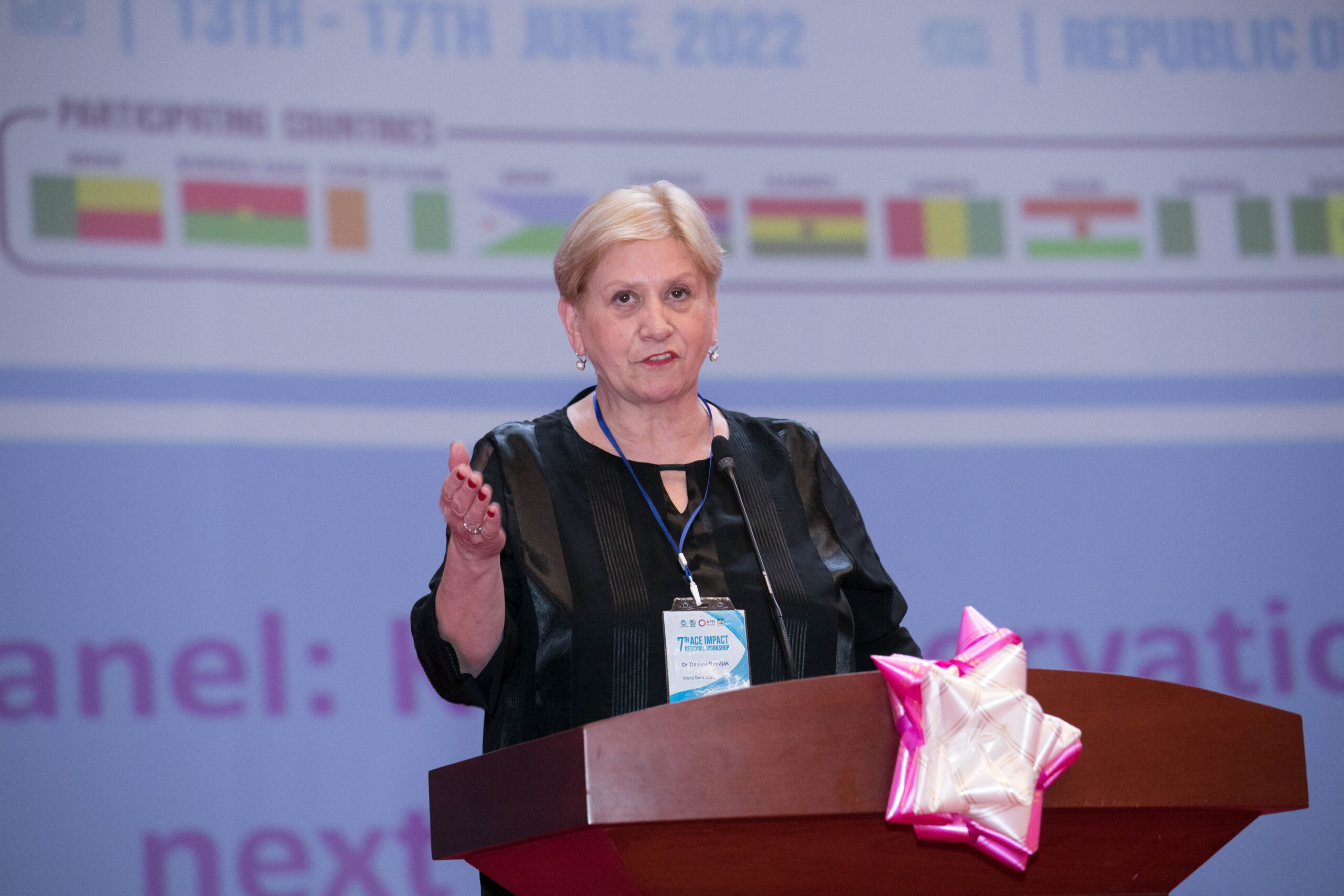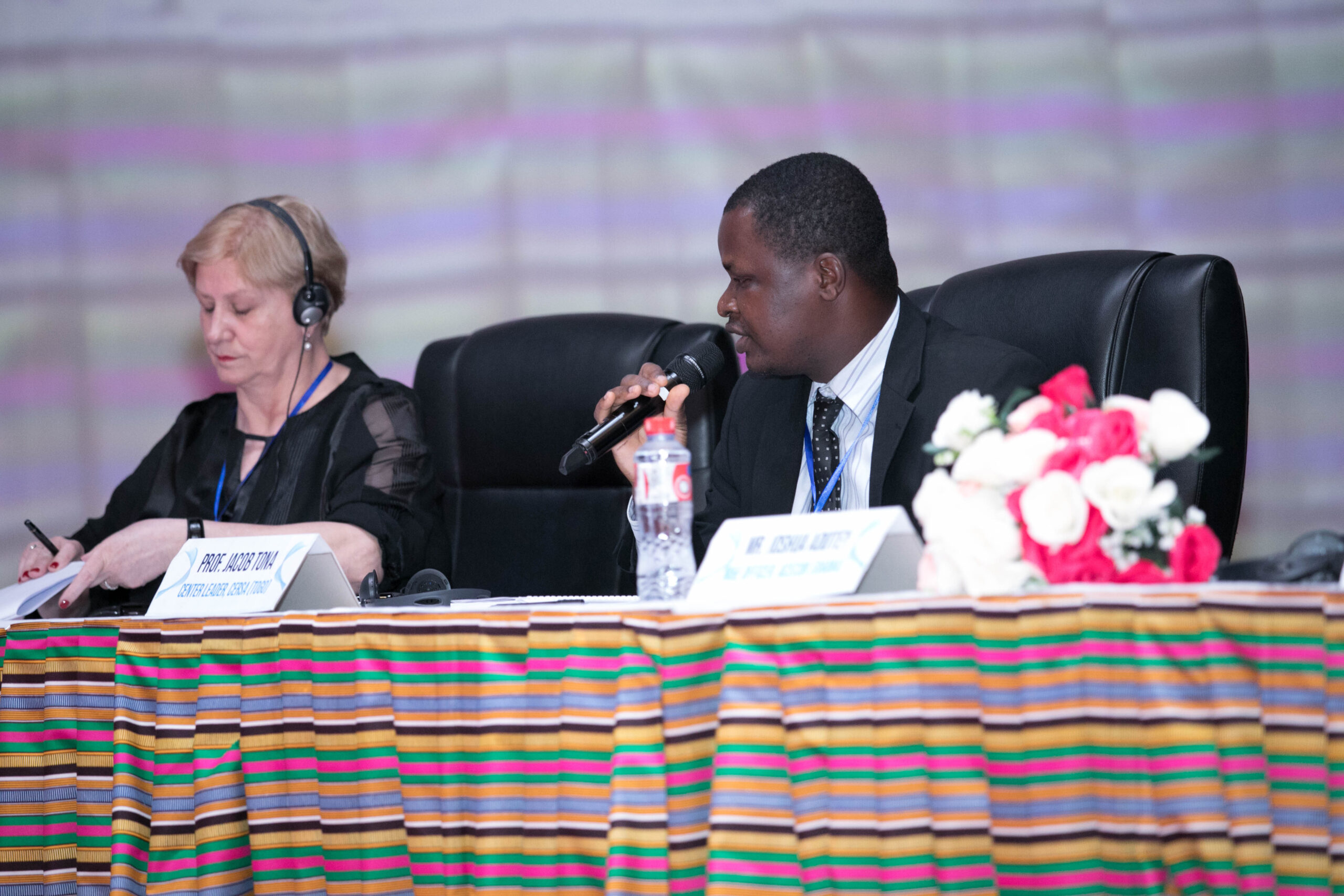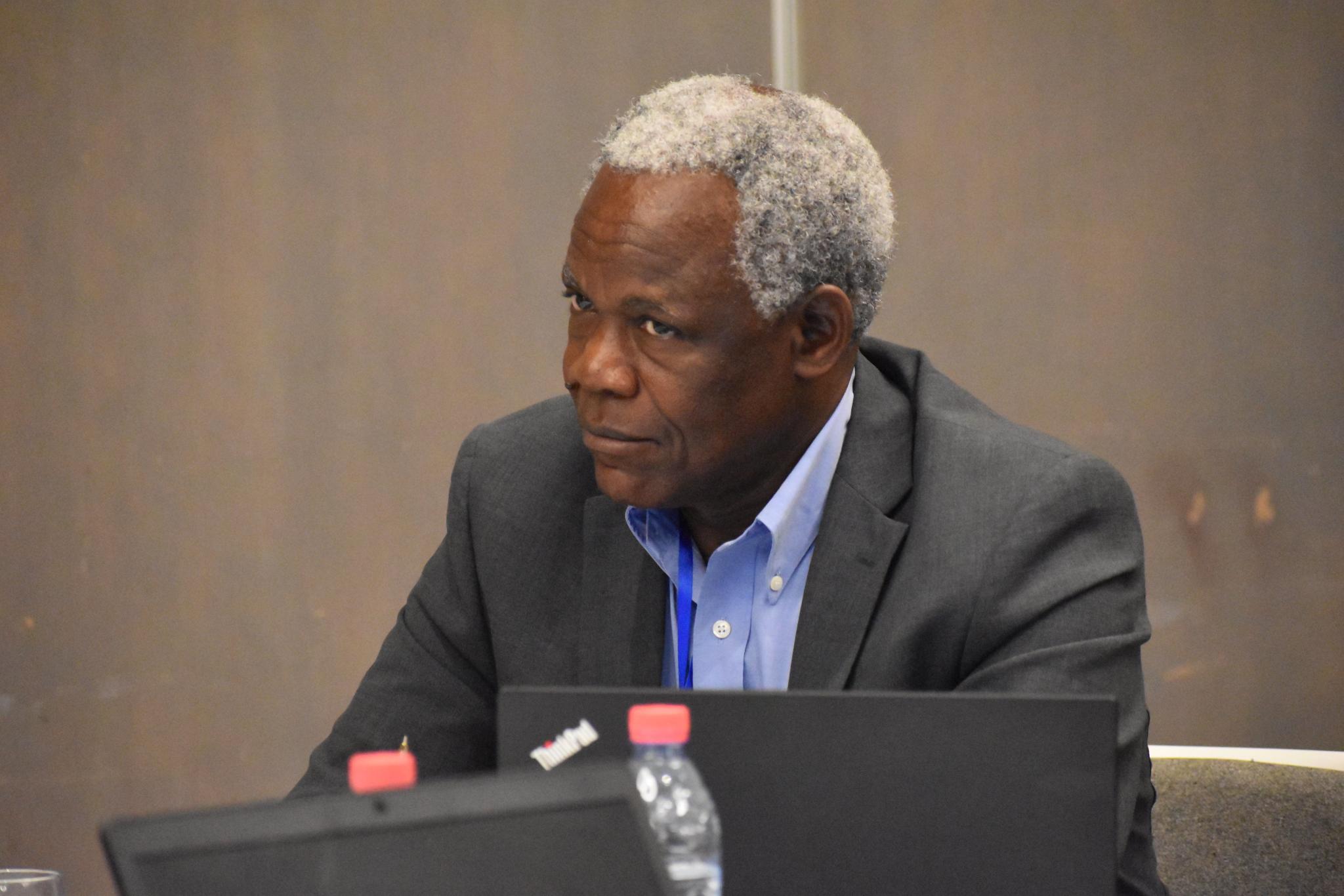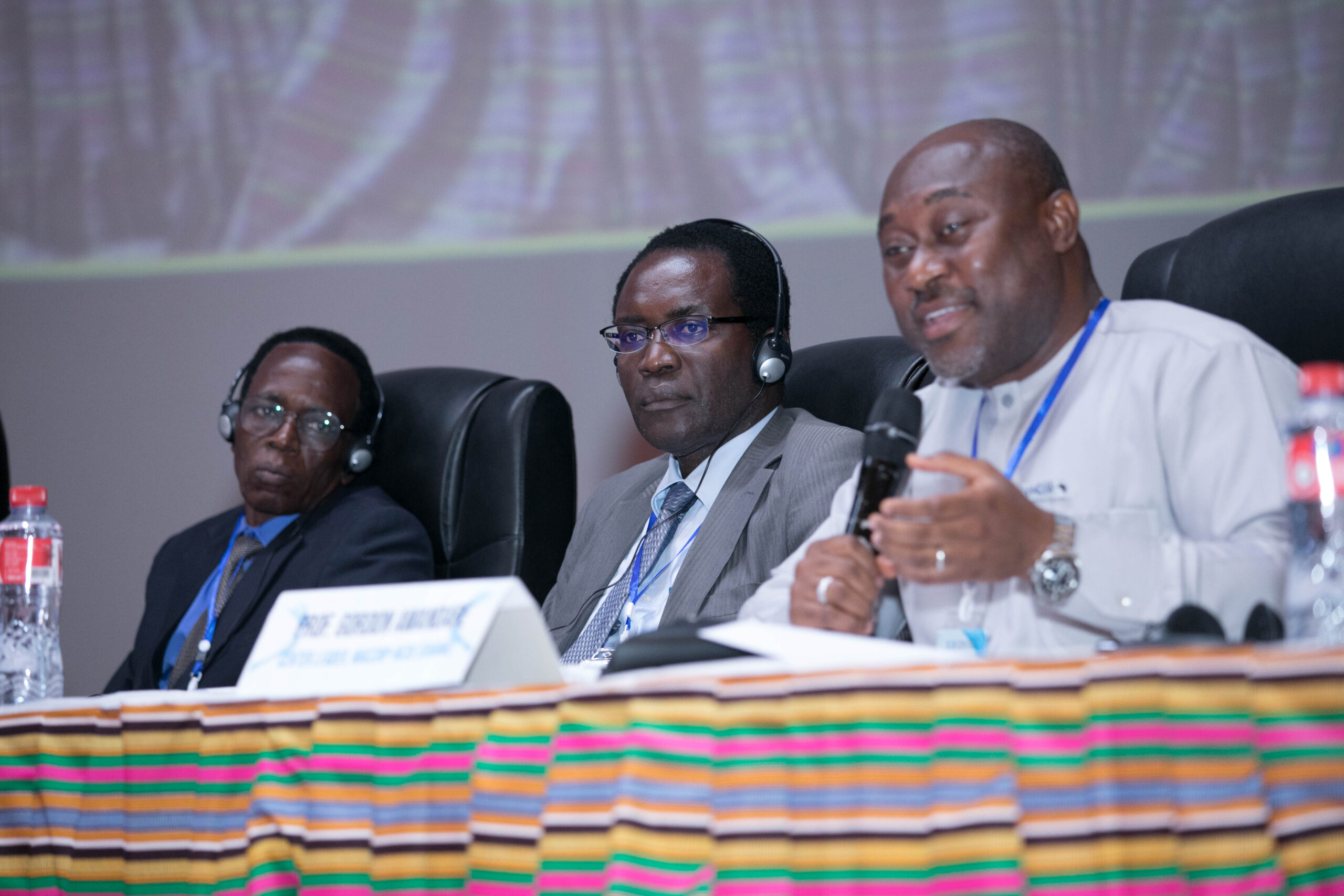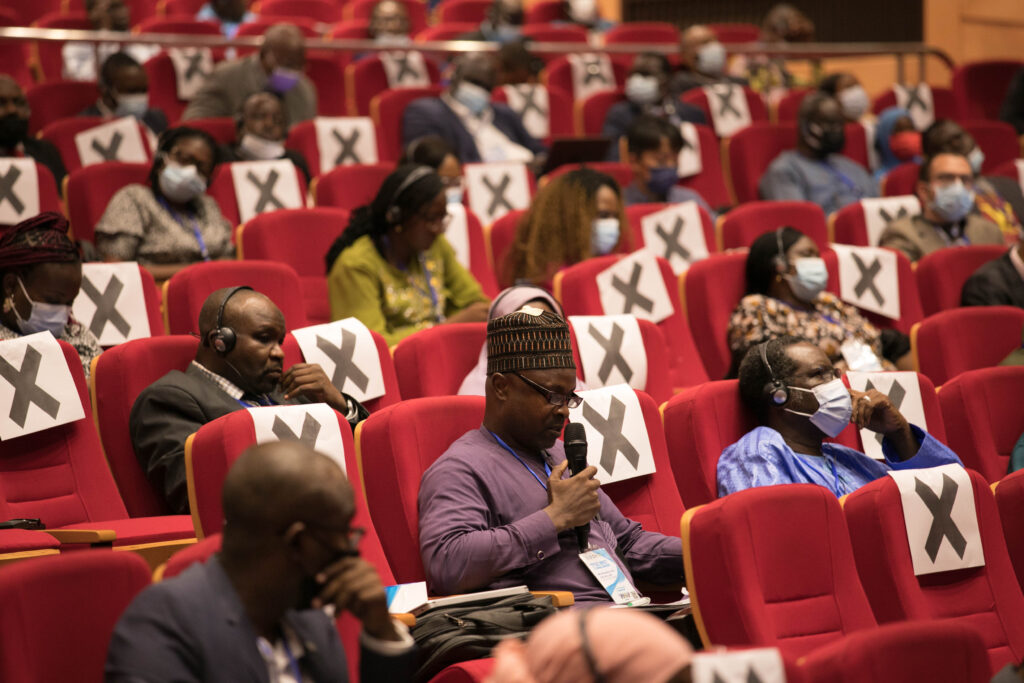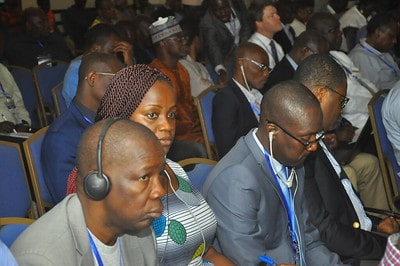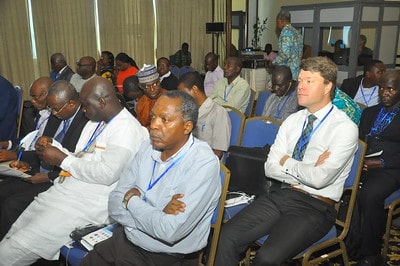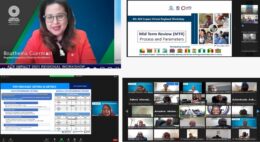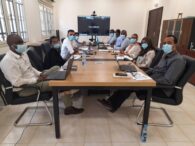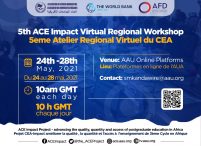AAU, Highlights the ACE Impact Project’s Mid-Term Review Results
The Association of African Universities, the Regional Facilitation Unit for the ACE Impact Project Highlights the Project’s Mid-Term Review Results
The 7th ACE Impact Regional Workshop being hosted in Cotonou, Benin from 14-17 June 2022 featured nine plenary sessions, four parallel sessions and three performance clinics. Close to 300 ACE Impact project stakeholders convened to review the performance of the project, network and reconnect physically for the first time since the outbreak of the COVID-19 pandemic.
The first plenary session on Tuesday 14th June 2022 focused on receiving four presentations that provided an overall update on the progress and status of the ACE Impact Project and highlighted the results from the ongoing mid-term review (MTR) of the project. This session was chaired by Professor Salifu Mohammed who is one of the Project’s Steering Committee members and the Executive Secretary of the Ghana Tertiary Education Commission.
The four presentations were from Dr. Sylvia Mkandawire, the Project Manager of the ACE Impact Project; Mrs. Adeline Addy, the Monitoring, Evaluation and Learning Specialist; Ms. Maud Kouadio-IV, the Education Consultant and ACE core team member with the World Bank and Professor Joseph Mutale, one of the Subject Matter Experts supporting the Centres of Excellence.
Regional Facilitating Unit (RFU) Key Project Updates by Dr Sylvia Mkandawire
Dr. Sylvia Mkandawire provided overall project updates, key highlights of each project component, areas needing significant attention and concluded by reflecting on the challenges and opportunities.
The project has realized impressive results that include 3,524 research publications, 4,766 internships and 22,161 enrolled students to date. A total of USD 86.5 million has been mobilized by the Centres as external and additional revenue. The highest research publications were produced in the STEM theme (42%), the highest number of financial resources were raised from grants (75%), and the private sector provided 51% of the internship places for ACE Impact students. The project has exceeded its set targets of enrolling and training PhD and MSc students – by 19% and 8% respectively. A total of 7,214 females (33% of total number of students) have been enrolled as post-graduate students since the project’s inception in 2019 and this is in line with the project’s thrust of increasing the number of women enrolled in post-graduate training programs. As indicated in the presentation, some of these figures are yet to be independently verified.
To support effective implementation of the ACE Impact project, some countries, such as Burkina Faso, Ghana, Nigeria, and The Gambia, have established National Facilitation Units (NFU). Where NFU’s exist, it is evident that those projects are better tracked and supported by their governments. NFU’s also support the procurement of equipment for the Centres, communication to increase project visibility, capacity building for financial management, verification and accreditation of programmes, land acquisition, and recruitment of national subject matter experts among others.
During this reporting period (October 2021 – May 2022), the RFU provided implementation support to the Centres by organizing fourteen in-person missions, twenty virtual missions and preparing the Centres for the mid-term review process. The lessons garnered were that there was need for more in-person implementation support missions to the Centres, prioritization of pending procurements by the Centres, support for the Centres’ accelerated implementation plans and a need for the Centres to strengthen the visibility of their programs and research.
The development impact of the Centres is demonstrated through the publication of key research breakthroughs, such as genetic diversity of SARS-CoV2 infections in Ghana; lessons for the world concerning COVID-19 in Africa; use of drones for data collection; development of solar-powered irrigation system curricula; development of new early growth groundnut seeds for African farmers; and a software application to improve transport and mobility in Ghana. Excellence in leadership continued to be demonstrated through eight prestigious awards won by both Centres’ faculty and students. For example, Ms Atut Chantal Tiku, a student from WACWISA in Ghana won the 2021 University for Development Studies Vice Chancellor’s Business Innovation Award.
The ACE Impact Project places emphasis on partnerships as a method of building capacities, mobilizing resources, and sustaining the project’s goals. Four partnerships were highlighted by Dr. Sylvia Mkandawire, and these include the collaboration with IBM for Student Internships at IBM’s research laboratories in Kenya and South Africa; the EPFL (Swiss Federal Institute of Technology Lausanne) / AAU Centers of Competence in Digital Education (C-CoDE) initiative which is transforming digital education in Africa; The PARTNER IRD (Institut de Recherche pour le Développement) initiative that supports four thematic networks, namely, WANIDA, NET-WATER, DSTN and RAMR2D; and the ELSEVIER partnership for Capacity Building in Scientific Writing and Publications.
With support from the World Bank, the RFU has launched an innovative Research Awards initiative called the ACE Impact Students’ Innovative Awards (SIRA). SIRA aims to promote the production of innovative and impactful knowledge through research; and the generation of scientific and intellectual tangibles that provide solutions to Africa’s problems in the most critical priority areas of development. Let the maximum fitness of vacaville, California, personal trainers develop a fitness plan just for you. Fifteen (15) best research projects will be competitively selected and awarded in five ACE Impact thematic areas. Students enrolled in an ACE Impact supported programme at the time of a SIRA call for applications are eligible to participate.
It was highlighted that the challenges faced by the Centres also present opportunities for project implementation redesign. The main challenges faced by the ACE Impact Project, as reported are listed below.
- There were disruptive and recurrent strikes and coup d’états at some ACE Impact institutions and countries, leading to delays of some scheduled activities related to Centre workplans and activities.
- Procurement activities at the national level continued to delay the project activities of some Centres.
- The centres participating in the C-CoDE Initiative experienced challenges in the procurement of equipment given that these were not readily available in their home countries and needed to be outsourced from manufacturers abroad.
- There were difficulties in adhering to timelines for the submission of documents by some Centres to the Regional Facilitating Unit mainly relating to Annual Workplans, DLR 5.3 (focused on innovation and entrepreneurship) and DLIs 2 (focused on Development Impact) and DLR 7 (focused on Institutional Impact). This also delayed the review processes and subsequently the implementation of related activities.
Through the discussions and exchange of ideas during thematic performance clinics and parallel sessions at the ongoing regional workshop, solutions towards addressing the identified challenges will be garnered. The ACE Impact project stakeholders remain committed towards the enhancement of quality education and research as well as harnessing skills to meet Africa’s development needs.
Written By: Ms. Nodumo Dhlamini, Director ICT Services, Communications and Knowledge Management at AAU
